If you’ve been wondering about starting a ketogenic diet, then the beginners’ guide to the keto diet is perfect for you .. how it works, what to eat, how to start AND even how to avoid the keto flu!
There’s even a FREE meal plan and low-carb shopping list so you can get started straight away.
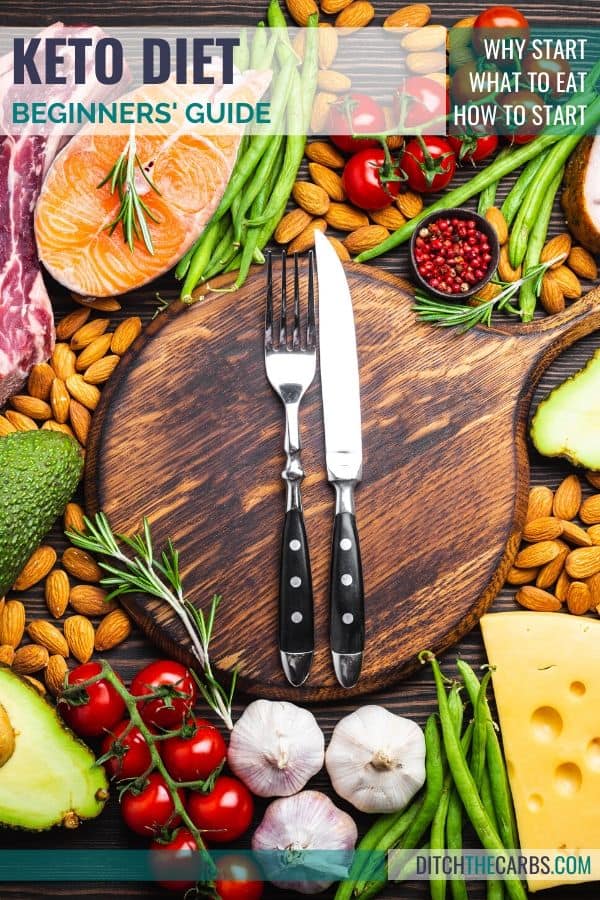
The Beginners’ Guide To The Keto Diet is an article was written by Libby Jenkinson, MPS and reviewed by Raphi Sirtoli, MSC
[convertkit form=2151210]
Are you ready to create the ultimate 12-month blueprint for reaching your health & weight loss goals this coming year?

Our free on-demand video training will walk you through how to make 2024 THE year you set health goals…and keep them.
Discover how to start a keto diet and the 70+ low-carb and keto recipe for beginners.
The keto diet has become extremely popular over the last couple of years and that is for good reason. It works!
A Beginners’ Guide to the Keto Diet
So what exactly is the ketogenic diet?
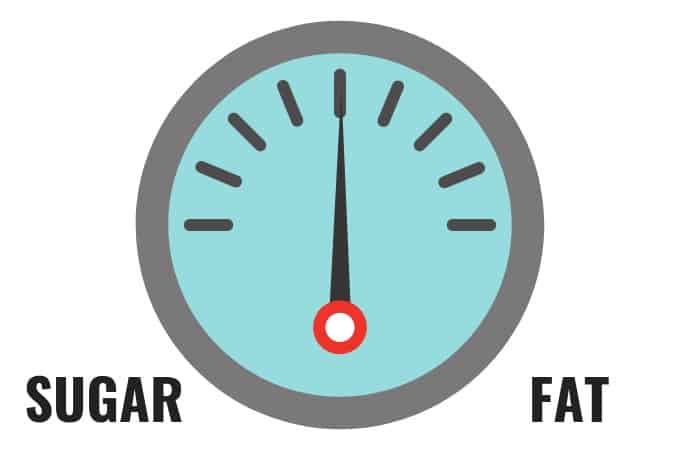
Well, as the name would suggest, the keto diet is based on the idea that the diet helps your body produce molecules called “ketones” from your stored fat.
When you keep your carb levels low and your body starts burning lots of fat for fuel (instead of sugar), ketones are created.
This state is called “nutritional ketosis”.
These ketones act as an incredibly clean energy source for your body and brain. They also perform important ‘signalling’ tasks, like dampening chronic inflammation (1).
When your body is fuelled by a keto diet, it switches from using glucose as its energy source to burn fat more efficiently. When you lower your dietary carbohydrates, you begin to use your glycogen stores and lower your insulin levels (the energy storage hormone).
You can then achieve stable lower blood glucose levels and your body will switch from being a sugar burner to a fat burner.
When you are fuelled by ketones, you experience more stable energy levels, improved mood, decreased hunger, reduced inflammation, and incredible mental clarity. No more afternoon energy slumps!
What are the health benefits of the keto diet?
Some people may find incredible improvements virtually immediately, and for others, within just a few days or weeks. A good rule of thumb before you begin any new diet or eating plan is to get the okay from your doctor, especially if you have any underlying health issues.
There are numerous advantages of a low-carb diet. Faster and more sustained weight loss, improved blood sugar control, reduced hunger, reduced inflammation, improved mental clarity, and clearer skin.
As with any major lifestyle change, you may experience a marked improvement in your health. So be sensible and ensure your medication and blood results are reviewed regularly. Once you have gotten the okay from your doctor, you can start to plan out your new menu.
What do you eat on a keto diet?
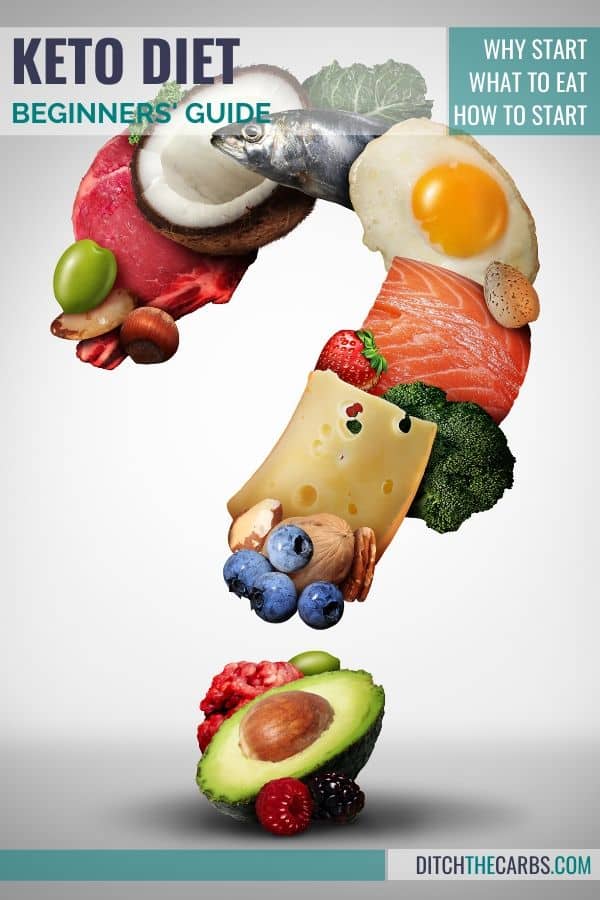
If you are wondering what are you allowed to eat on a keto diet, don’t worry. There is absolutely no deprivation in living a keto lifestyle. We live like kings!
We base all our meals on whole food that is low in carbs, moderate to high protein, and high in healthy fats. Think meat and simple veggies with some healthy fat thrown in for good measure. It really is that simple!!!

So you can plan to have plenty of quality meats, healthy fats, full-fat dairy, non-starchy veggies, nuts, seeds, berries and more.
I’m sure that you are aware that you need to avoid carbs with the keto diet and that is true. You can expect to cut high-sugar fruits, all sugars (yes even honey and coconut sugar – spoiler alert – they’re all sugar), bread, grains, starchy foods, root vegetables and beans/legumes from your diet.
Once you get used to it though, you will find that you feel much better and don’t miss those other foods at all. It is these dietary changes that will get your ketones moving!
If you’re just starting out (or the scales have stopped moving) these 100 Top Tips from my Facebook group of over 50,000 members will help you get tsarted.
You can use my FREE RECIPE INDEX to plan your own meals, or make life easy for yourself … and use my meal planning service.
How does the keto diet help weight loss and diabetes?
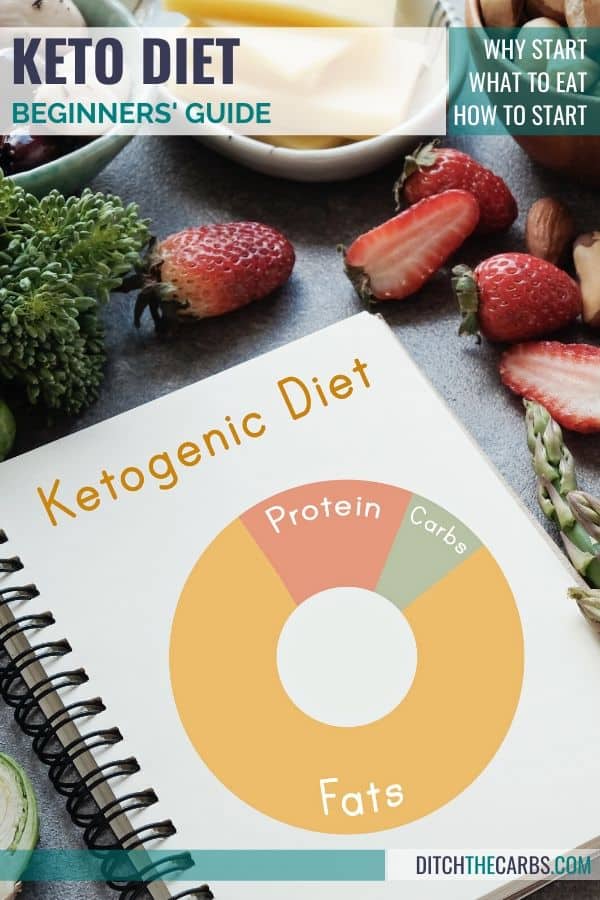

Studies have shown that the ketogenic diet can help in numerous ways.
These may include weight loss, increased energy, reduced inflammation, less intestinal distress, incredible mental clarity, improved cholesterol profile, stable blood sugar levels and more.
The keto diet can reverse insulin resistance, an unhealthy metabolic state at the root of many modern chronic diseases. It can do that in part by lowering high insulin and blood sugar levels, as well as stabilise blood sugar swings.
These reasons alone make the keto diet a great choice for those who are trying to improve their health.
- Of all the weight-loss dietary interventions, research studies using low-carb interventions lost greater weight (and fat) than participants on low-fat interventions. (2)
- By lowering carbohydrate intake, blood sugars are controlled and insulin levels are minimised. This is incredibly beneficial for those with diabetes (type one or two) and those with insulin resistance.
- Low-carb diets normalise appetite, in part by minimising blood sugar swings which often lead to cravings. (3)
- Low-carb diets have a beneficial impact on a whole host of heart disease risk factors such as reduced inflammation, reduced triglycerides, increased HDL, just to name a few.
What is the keto flu and how do you prevent it?
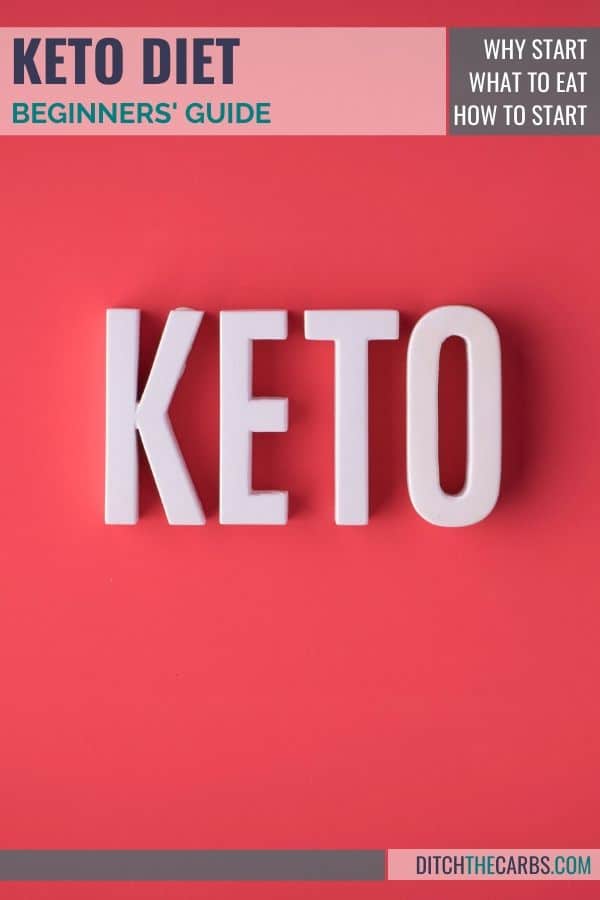
It is important though to remember that shocking your system with diet changes can sometimes have its drawbacks. Some people report they experience “keto flu”.
The keto flu is not a real “flu” but actually just symptoms that include dizziness, lethargy, nausea, muscle cramps, etc. These symptoms are often mild and can easily be remedied by starting your new low-carb lifestyle out slowly, staying hydrated, and keeping your mineral levels ups.
References:
- The ketone metabolite β-hydroxybutyrate blocks NLRP3 inflammasome–mediated inflammatory disease
- Effects of a low carbohydrate diet on energy expenditure during weight-loss maintenance: randomized trial.
- Ketosis, ketogenic diet and food intake control: a complex relationship

Get our FREE guide to finally fix your metabolism!
Losing weight & getting healthy is never easy, but lately you might feel like it’s suddenly become impossible.
Our Flip the Switch guide will help you clearly understand what’s been going on, as well as exactly what you can do to get your metabolism working again so that you can look and feel your best—it’s easier and more simple than you think!










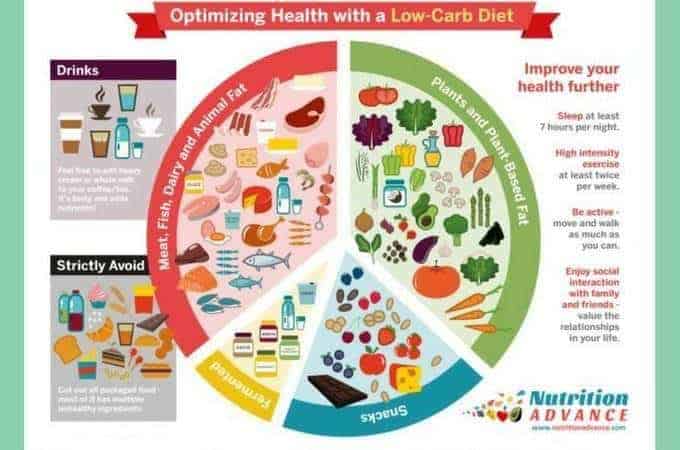
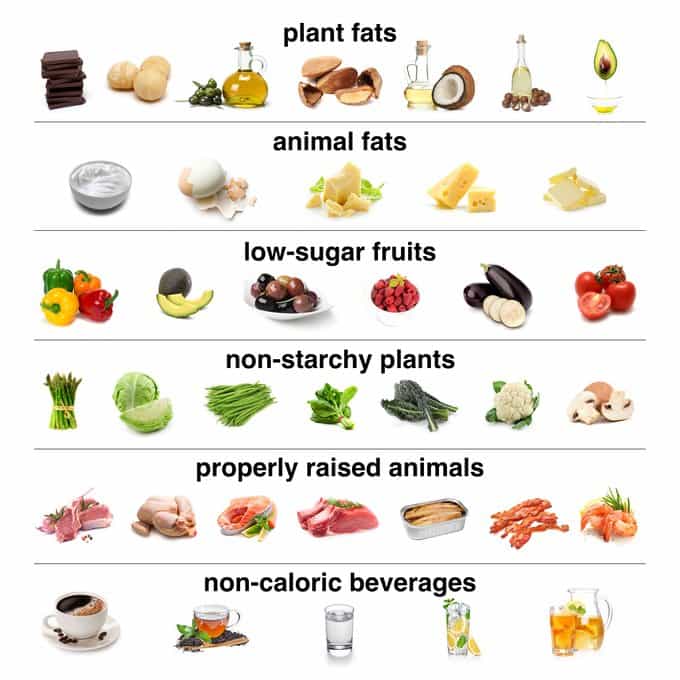
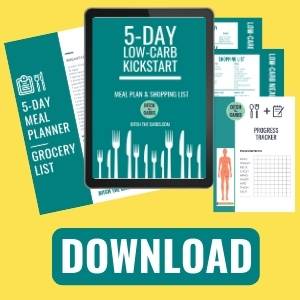

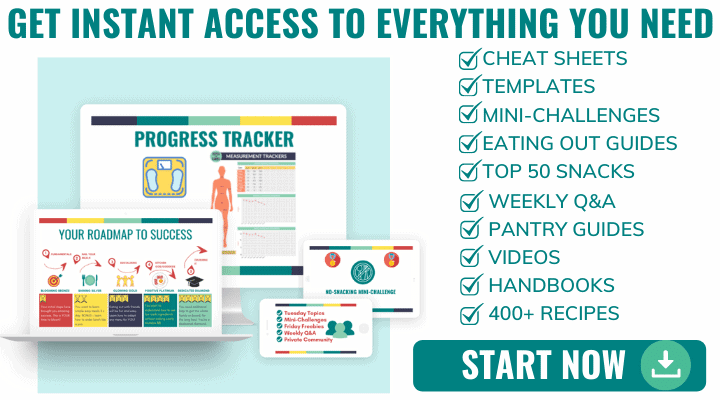







I am an insulin dependent diabetic and was always taught that ‘ketosis’, or ketoacidosis was bad for us.
I like the idea of increasing fats & lowering carbs, eating chocolate 3X a week and providing fats as that primary energy source. Yet what about the years of teaching that ‘low fat’ cut heart disease, diabetes, cancer etc., needing large doses of ‘statins’ to drive them down?
Is this truly a change of medical thought or just a FAD? I need to know and of course i will clue my doctor in on the benefits. One more question, what about the increase in protein & kidney disease in diabetics? Most of those on kidney diets are limited to 15gms…1/2 a slice of keto pizza!!
The beauty is that science and quality research is coming out almost every day supporting the benefits of using the low-carb approach to regain and maintain health. It is not a fad, in fact, it has been used for generations and the low-fat period is relatively new since the 1970s, that is a fad and a truly failed experiment on the public health. I am in groups with the world’s top endocrinologists, cardiologist, diabetologist and GP’s who are all slowly changing their treatment guidelines to using the low-carb approach. When you talk about ketosis there is a huge difference to nutritional ketosis. If you are a T1 diabetic, why not join this group who are all using the low-carb approach to revolutionise their blood sugar and insulin control. If your GP wants more info, she/he can look at this article written for medical professionals.
Ketosis and Ketoacidosis are two different states. Yes Ketoacidosis is very dangerous for you as a diabetic. It will help you to do a bit more Reserch, or ask your doctor or nurse.
Hello,
I have wanted to do a low carb diet for a while and i have just started, 10 days ago or so slowly cutting out the easy carbs and making some recipes from this website (which are great). I allready feel the effect a lttile i hardly get hungry during the day and my concentration is also a little better. I haven’t completely read everything on this website but there was one thing i cannot really find and am wondering about. Can dried beans and peas fit into a Keto diet, because on one website i read no they contain to much starch and other websites say it can because the starch and other sugars are slower in digestion and don’t really give peaks in blood sugar.
Maybe you have an opnion on this?
Linda
Personally, and most low-carb/keto folk I know, avoid all legumes, beans, peas, lentils etc. They are just too high in carbs. They may give slower digestion but their carb load is still high. These charts may be useful to take a look at – they show how carbs from regular food affect our blood sugars.
Thanks for sharing this post. Please keep posting more.
Great guide for keto!
hiya
I have recently started a low carb diet as I suffer with ME/CFS and was hoping Ketosis could help with the food “comas” I was experiencing. I have found the brain fog has lifted a bit already. Do you know of any studies that are targeting ME/CFS sufferers?
Shirley
I suggest you look at Low-Carb Practitioners.com which has a library of studies using ketogenic nutrition in certain health conditions. You can also find a low-carb doctor near you. Best of health.